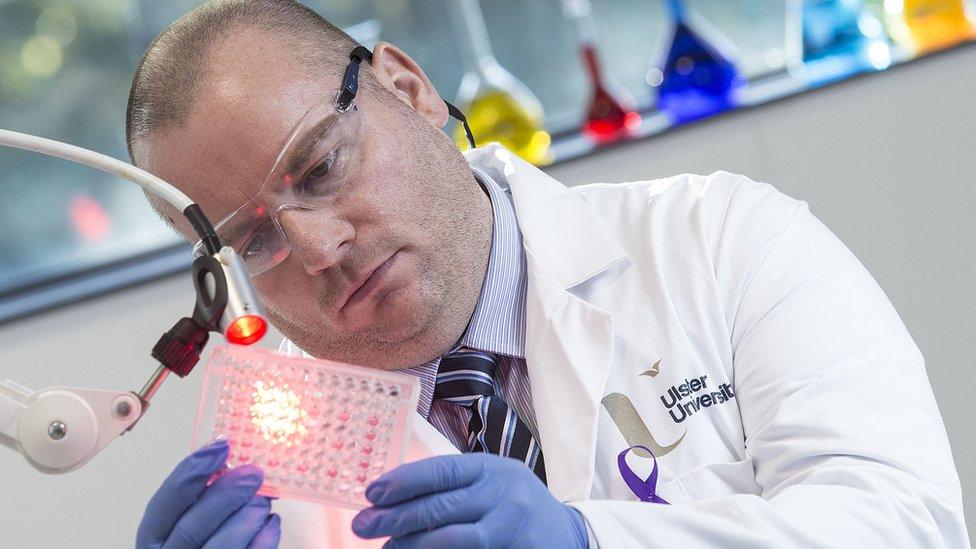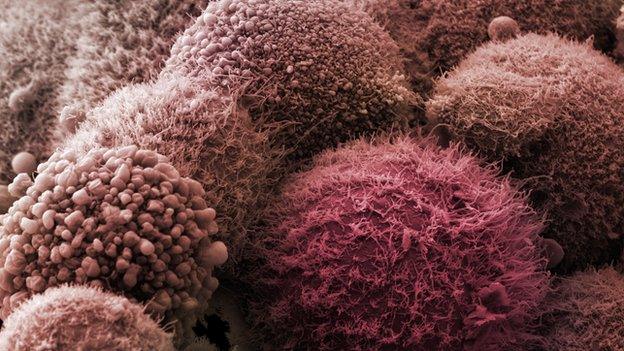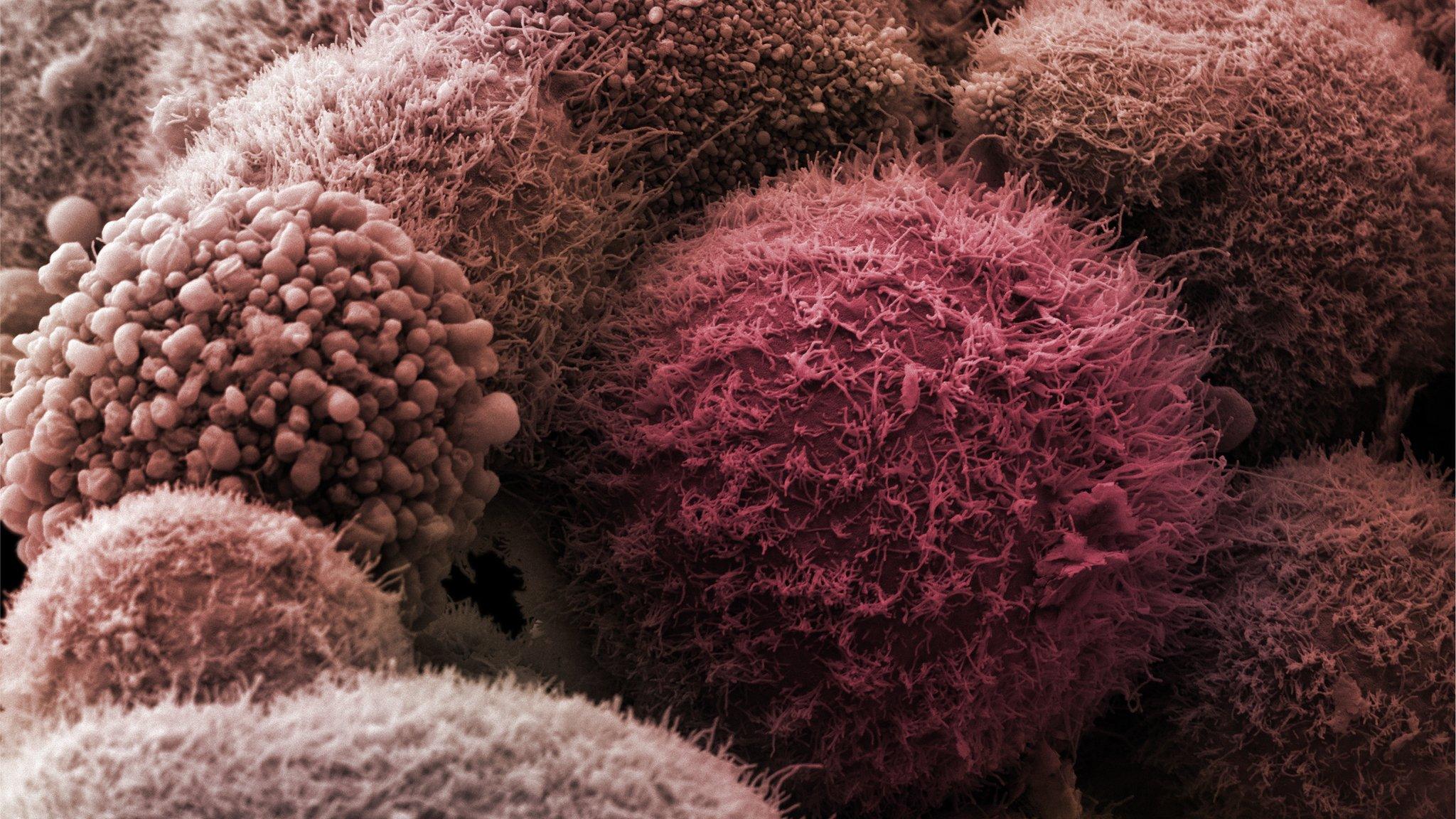Pancreatic cancer treatment 'breakthrough' - Ulster University
- Published

The treatment involves injecting tumours with drug-coated oxygen micro bubbles
A new treatment for pancreatic cancer could significantly increase survival rates, Ulster University has claimed.
It said the treatment could lead to a five-fold reduction in tumour size.
It involves injecting tumours with oxygen micro bubbles that are coated with a drug which is then activated by ultrasound.
Pancreatic surgeon Mark Taylor said the researchers' work was "a very exciting development".
"If this local treatment can actually allow us to operate, then we have a five-fold increase in survival," he told BBC Northern Ireland's Good Morning Ulster.
Pancreatic cancer is one of the hardest tumours to detect and treat.
Just under 9,000 people are diagnosed with it in the UK every year. It has the lowest five-year survival rate of any common cancer and one that has barely improved in 40 years.
Mr Taylor said pancreatic cancer survival rates were low because it is a disease that tends to have few symptoms and, when these present, it is at a very late stage.
Also, many of the symptoms are vague - simple heartburn, indigestion, unexplained weight loss. This can make it difficult for doctors in general to diagnose it at an early stage.
The new treatment offered fresh hope to patients.
"The potential is that we can reduce the size of these tumours by this type of targeted local therapy which would then allow resectional surgery to take place to remove the tumour," Mr Taylor said.
"Eighty per cent of people have unresectable tumours and if you are able to give a targeted treatment without the side effects of that treatment in the rest of the body, then that helps prolong survival and that is an excellent chance."

Professor John Callan said this was "one of the most promising advances in pancreatic cancer research for decades"
The university said it was a "major breakthrough that can open up more treatment options, even for advanced forms of the disease".
Prof John Callan, who led the research at the university's biomedical laboratories in Coleraine said this was "a highly novel and targeted technique" and "one of the most promising advances in pancreatic cancer research for decades".
"We can selectively target the tumour and spare healthy tissue making this a highly targeted therapy with reduced side-effects," he said.
"This really is a groundbreaking development and one of the most promising advances in pancreatic cancer research for decades."
"We are hopeful that within the next one to two years we can start to begin clinical trials with this technology."
- Published15 October 2015

- Published3 August 2015

- Published25 June 2015
